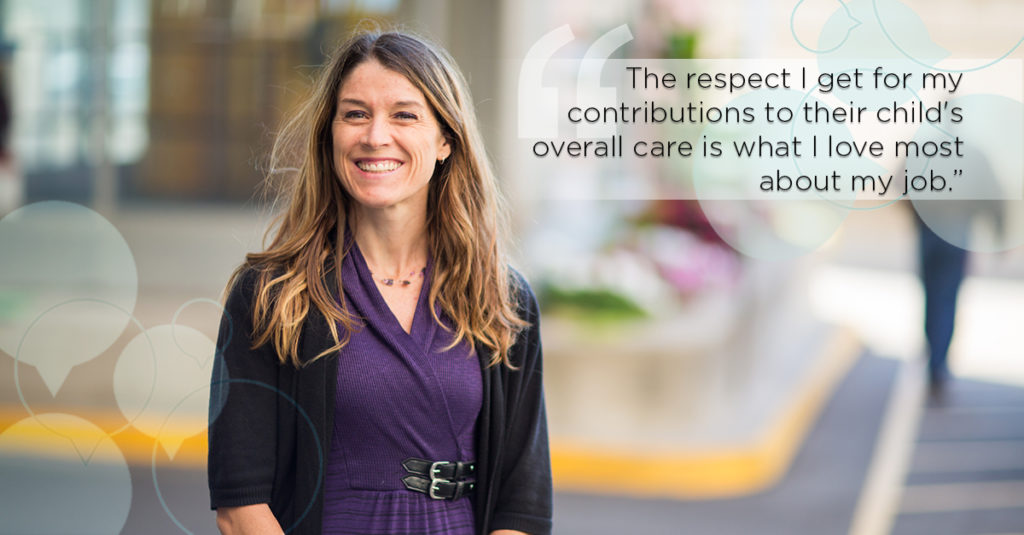
Introducing… a registered dietitian
Laura Collins is a registered dietitian who works in the pediatric oncology unit at McMaster Children’s Hospital. She’s been with HHS since she completed her dietetic internship here in 2000.
What do you love most about your role?
I enjoy providing nutrition education, support and ongoing monitoring throughout a patient’s cancer treatment. The gratitude from families and the respect I get for my contributions to their child’s overall care is what I love most about my job.
What do you find challenging?
My job can be emotionally demanding. But I recognize how important nutrition support can be to improve tolerance to cancer treatment. Most patients with cancer need this support, which also decreases length of stay and improves quality of life. The challenge is always finding time to ensure adequate and appropriate nutrition interventions and monitoring.
Ongoing communication with the families and our team is necessary to meet nutrition goals and to ensure timely discharges.
Describe a typical day
Every day, I review the oncology patients on the wards and prioritize those with nutrition concerns. Typically this includes all newly diagnosed patients, those receiving nutrition support (total parenteral nutrition or enteral nutrition) and those with changes to weight or oral intake issues. I then complete a nutrition review with the patient and family prior to daily ward rounds. We implement nutrition interventions after a discussion with the team and family. This ensures we deliver patient-centred care. Ongoing communication with the families and our team is necessary to meet nutrition goals and to ensure timely discharges.
Tell us about your most gratifying experience at HHS
I once advised a patient to take nasogastric (NG) feeds as he was beginning to lose weight and had poor oral intake. This was met with some resistance by his family as it’s not the easiest thing to witness for your child.
Several weeks later the patient was no longer eating, talking or walking due to malnutrition. He was admitted for nutrition repletion and hydration. Parenteral nutrition was required for three weeks while we continued to advocate for NG feeds.
Finally, the patient started eating small amounts of food, began walking, smiling and talking again and was sent home on NG feeds. His family wrote a letter to thank me for my dedication to their son’s nutrition needs. They ended up truly believing in the benefits of nutrition support in cancer treatment.
What’s one thing people would be surprised to learn about your role?
My role gives me many opportunities to research my area and publish several articles. This allows me to incorporate evidence-based practice to benefit our patient population at Hamilton Health Sciences.
